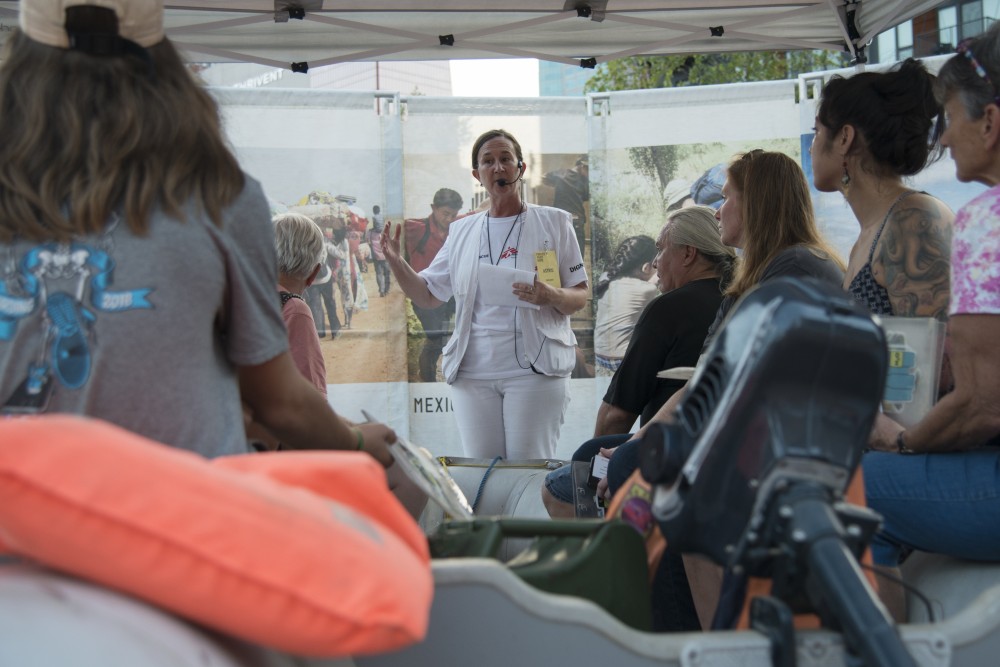The Commons park outside U.S. Bank Stadium was transformed into a faux refugee camp last week. Visitors were given a new identity and were allowed to take five items with them as they walked along a makeshift trail and traded their belongings for safety and resources.
The Forced from Home exhibit allowed people to learn about the experiences of refugees through an interactive simulation. The global health nonprofit Doctors Without Borders, or MSF, has hosted the event across the country in hopes of raising awareness and garnering interest from volunteers and workers.
Erin Ching, external relations manager for Doctors Without Borders, said most of the people going through the exhibit were students, from seventh grade through college.

“We have students whose parents are refugees, across the board to students who know nothing about refugees,” Ching said. “We really wanted to humanize the narrative, even if we got someone to ask the next question then we have done our job.”
A resource tent rounded out the exhibit, featuring ways to get involved in the Twin Cities with local community organizations and refugee resettlement agencies. There was also information on how to volunteer with DWB.
“The best way for [University] students to prepare for a possible career with [DWB] is to volunteer locally with high risk or under-served groups here in town,” said Dr. Joseph Keenan, a lung and intensive care doctor at M Health who has served with Doctors Without Borders in Sudan, Nigeria and Ethiopia.
Doctors Without Borders did additional outreach on the University of Minnesota campus while in town. A discussion panel was hosted in the Coffman Memorial Union Theater and a recruitment information session was held near campus.
Numerous doctors and students from the University volunteer with the organization.
Dr. Sarah Kesler, an assistant professor in the Department of Medicine, said that her work with Doctors Without Borders has helped make her a better physician here at the University.
“I think that DWB is something many students are interested in pursuing,” Kesler said. “[But] I think debt makes it a problem for many.”
Along with students and doctors volunteering for Doctors Without Borders, the University has also worked in other areas of refugee healthcare.
Dr. Patricia Walker, a professor in the Department of Medicine, said that Minnesota and University doctors are leading experts in refugee healthcare. Walker’s work focuses on serving the local immigrant populations.
According to the United Nations Refugee Agency, forced displacement is at a record high, with 68.5 million people displaced worldwide at the end of 2017.








